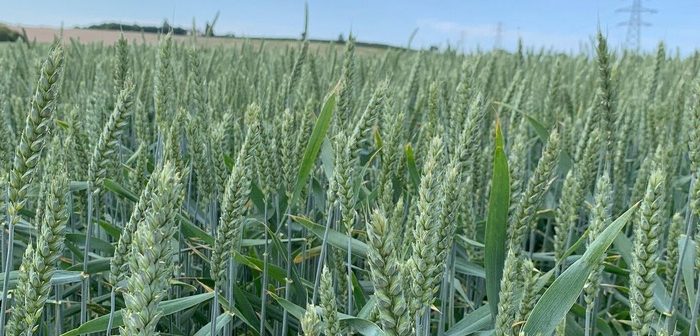Seed-borne fungi can seriously affect the growth and yield of many cereal crops. A biofungicide seed treatment which has been proven to be equally, or more, effective than synthetic chemistry is now available to protect the seed of wheat, rye and triticale crops in the UK.
Cerall seed treatment from Koppert is based on the beneficial bacterium Pseudomonas chlororaphis strain MA 342, which controls seed-borne diseases including Fusarium, common bunt (Tilletia caries) and Septoria nodorum.
Works in a number ways
The bacterium in Cerall works in a number of ways. Firstly, it produces substances which are instantly lethal to the fungi which cause crop diseases. Secondly, when present on the roots of the crop, the bacterium competes with these plant pathogenic fungi for space and nutrients, inhibiting their development and resulting in stronger plant roots. Finally, the bacterium actually induces resistance within the plant, so that it is pre-armed to fight disease infection naturally, promoting healthy growth particularly under stressful conditions.
“Seed treatments and good seed hygiene are obviously well-established elements of an integrated crop protection strategy, but Cerall goes beyond this in actually promoting resistance in the plant,” comments Dr Richard Binks, Koppert Crop Protection Consultant.
NIAB trials
In trials conducted by NIAB, Cerall was as effective at controlling seed-borne bunt as the chemical control, and other trials across Europe have demonstrated its effectiveness against diseases including Fusarium and T. caries. As a result, some 55,000 ha of cereals are treated with Cerall across the EU each year.
“Another advantage of Cerall is that, as it consists of natural components, it is suitable for use in both conventional and organic crops, and has been verified for use in organic production by both the Soil Association and Organic Farmers & Growers,” adds Richard. “As a natural product, resistance is highly unlikely to develop and it provides long-term disease protection with no Maximum Residue Limit (MRL).”
Cerall is applied as a liquid seed treatment, and so growers are urged to contact their seed supplier in plenty of time to arrange treatment of their seed prior to drilling.



